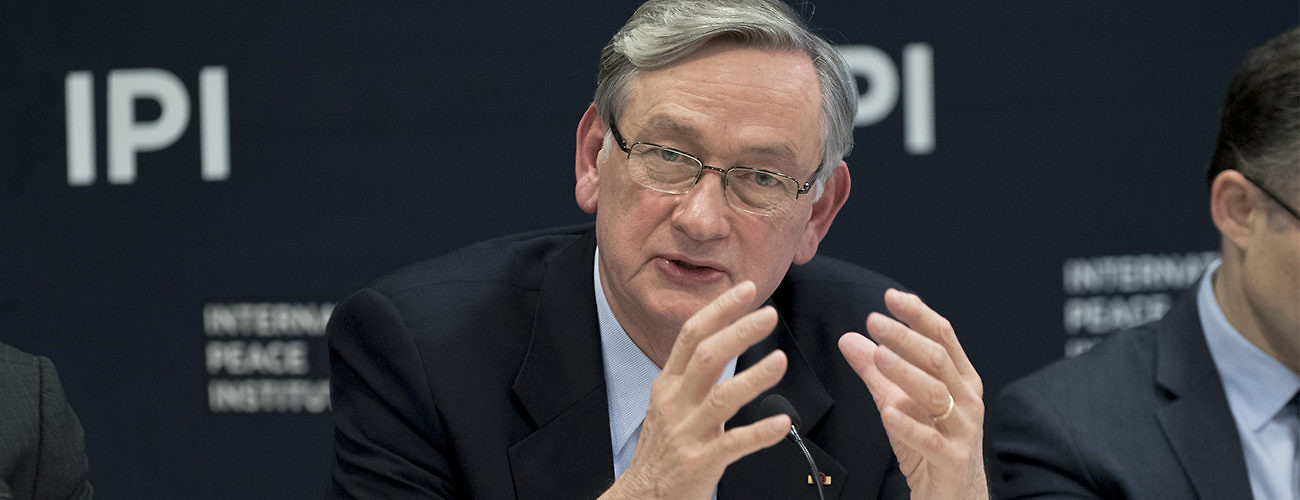Danilo Türk, Chair of the Global High-Level Panel on Water and Peace, told a January 19, 2018 policy forum on global water management that at a time of growing scarcity of water and rising demand for it, insuring international water cooperation had become an essential “instrument of peace.”
Mr. Turk, a former President of Slovenia and UN Assistant Secretary-General for Political Affairs, said that despite the creation of the panel three years ago aimed at strengthening the global framework to prevent and resolve water-related problems, the international response remained “painfully fragmented, and there is a need for much greater coherence and much more concentrated action.”
To that end, he said that a report produced by his panel had called for a “global observatory for water and peace” which, he said, would be “a kind of network type of international mechanism” to strengthen the cooperation of all of those already active on the subject and those likely to become active in the future when, he emphasized, the problem would become even greater. “It is important to understand that the world has to find ways to produce 50 percent more food in the next 25 years and to double energy production at the time when water is diminishing,” he said.
Sundeep Waslekar, President of the Strategic Foresight Group, a think tank based in India, said that the central message of the panel’s report was that “water cooperation is not only good for good water governance and sustainable development, but it is also essential for comprehensive peace and political stability.” He called water a “catalyst for political dynamics which go well beyond the traditional consideration of water.” He noted that, unlike oil which can be substituted by alternative sources of power like natural gas or solar energy, “the only alternative to water is water, and therefore water is a matter of survival.”
Mike Hammah, former Minister for Lands and Natural Resources of Ghana, cited the “undeniable fact that the lack of safe drinking water is not only a health issue but a security and development challenge as well.” In Africa, he pointed to the Volta Basin authority that balances the needs of three states, Ghana, Burkina Faso, and Togo, as the kind of cooperation that can insure that water becomes not a matter of conflict but one of keeping the peace. The key consideration, he said, was that no country should do anything with its water resource that cut into the resources of its neighbors. He said that the Economic Community of West African States (ECOWAS) had taken the matter a step further, creating a West African Coordinating Council to insure a “rational” water policy for the entire region.
Teresa Whitfield, Director of the Policy and Mediation Division in the UN Department of Political Affairs, said that UN operations had moved on from the days of having a general natural resources expert to one of having numbers of such experts to address specific needs. In the case of water, she said, the UN had been particularly active in Central Asia, an arid area of critical water need. She also noted the case of the Nile Basin “where you have questions of water and boundary use tangled up with broader geopolitical concerns.”
François Münger, Director of the Geneva Water Hub, pointed out the importance of having reliable and broadly credible data, particularly in potentially contentious situations like the dispute been Mauritania and Senegal over the Senegal River. “Data sharing is a key part of the cooperation,” he said.
The event was co-sponsored by IPI and the Geneva Water Hub.
The moderator of the conversation was IPI Vice President Adam Lupel.








